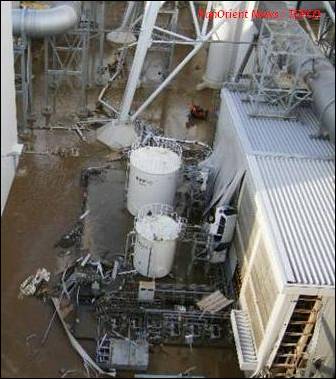|
|
Environment
Cesium 20 Times More than TEPCO's Estimate Leaked to Sea: IRSN
Friday, October 28, 2011

Tokyo- (PanOrient News) The amount of radioactive cesium leaked into the sea from Tokyo Electric Power Co.'s damaged Fukushima No. 1 nuclear plant was 20 times larger than the utility's estimate in June, the French government-affiliated Radioprotection and Nuclear Safety Institute, or IRSN, said.
A total of 27.1 quadrillion becquerels of cesium-137 leaked into the sea between March 21 and mid-July, Jiji Press reported quoting IRSN.
Of the amount, 82 percent is believed to have been leaked by April 8 through the release, into the sea, of water used for cooling TEPCO nuclear plant after it was hit by the March 11 quake and tsunami, it said.
In waters off the Fukushima plant in northeastern Japan, Cesium levels rose to tens of thousands of becquerels per liter in late March and early April. Undersea Cesium levels began to fall on April 11 and dropped below the lowest detectable level of 5 becquerels in mid-July.
As cesium levels are diluted by ocean currents, the contamination's impact on marine organisms is expected to be small this autumn or later, the IRSN said. But it warned that radioactive substances can continue leaking into the sea through soil.
In a related development, the Fisheries Agency asked fishing organizations in northeastern Japan to specify where their fish are caught, to ease concerns over contamination of marine products.
The agency has divided waters off the Pacific coast from Chiba Prefecture north to Hokkaido into seven zones, including "Pacific waters off Hokkaido and Aomori prefectures," "Waters off the northern Sanriku region" and "Waters off Hitachi, Kashima." Fish caught off the eastern coast of Japan in these areas must be labeled, according to the agency's new standards.
Japanese agricultural standards stipulate that fishermen are required to specify either the locations where they make their catches or where the fish are brought to port.
Analysts say there is no guarantee that the fish caught have not been in contaminated waters, given that many species are migratory.
Photo: Fukushima nuclear plant after the Tsunami
PanOrient News
© PanOrient News All Rights Reserved.
|
|

